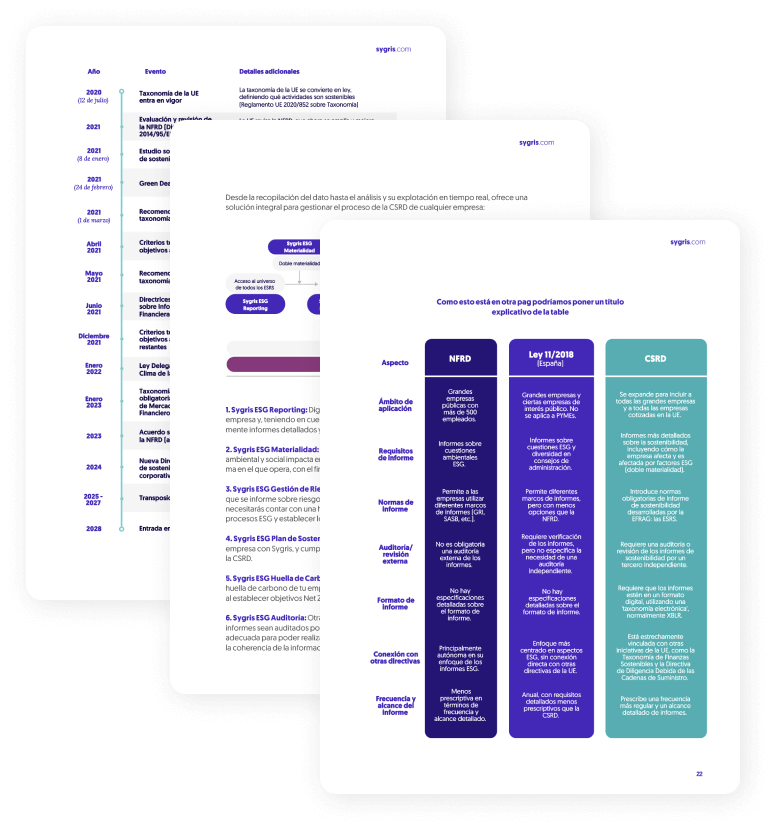At Sygris, we have been discussing the Omnibus Law and the evolving ESG landscape in the EU for some time. But today, 29 January 2025, the European Commission has presentes its long-awaited “Competitiveness Compass”, a key document shaping the EU’s regulatory future. It could bring significant changes to the ESG regulatory framework. The release was originally scheduled for 22 January.
This competitiveness roadmap focuses on regulatory simplification, investment in innovation, and reducing the administrative burden on businesses, directly impacting regulations such as the CSRD, the Taxonomy, and the CSDDD.
Four key takeaways from the leaked draft:
- Less bureaucracy: according to Euractiv, the Commission aims to cut reporting obligations by 25% for companies and up to 35% for SMEs. This could impact the CSRD and CSDDD, adjusting disclosure requirements to ease the burden on smaller businesses.
- Financial sustainability: the initiative seeks to align the Taxonomy and CSRD with investor needs, simplifying financial metrics and preventing adverse effects on SME financing during their green transition. While the proposal has yet to be officially published, Ursula von der Leyen mentioned this point at the World Economic Forum.
- New ‘mid-cap’ definition and ESG regulation adjustments: politico’s leaks suggest a new regulatory threshold for mid-sized companies, distinguishing them from large corporates and SMEs. This would allow for tailored sustainability requirements and improved access to financing.
- Decarbonisation strategy: the European Commission is looking to strike a balance between climate regulation and industrial competitiveness. Adjustments to the CSDDD implementation are expected, aiming to prevent offshoring and prioritise incentives over restrictions. However, specific details are yet to be officially confirmed.
On 26 February, a key milestone will be reached with the presentation of the first proposal of the Sustainability Omnibus, providing greater clarity on the impact of the CSRD. While the EU aims to reduce regulatory burdens, businesses must continue preparing and adapting to ensure compliance. We will keep you updated…




